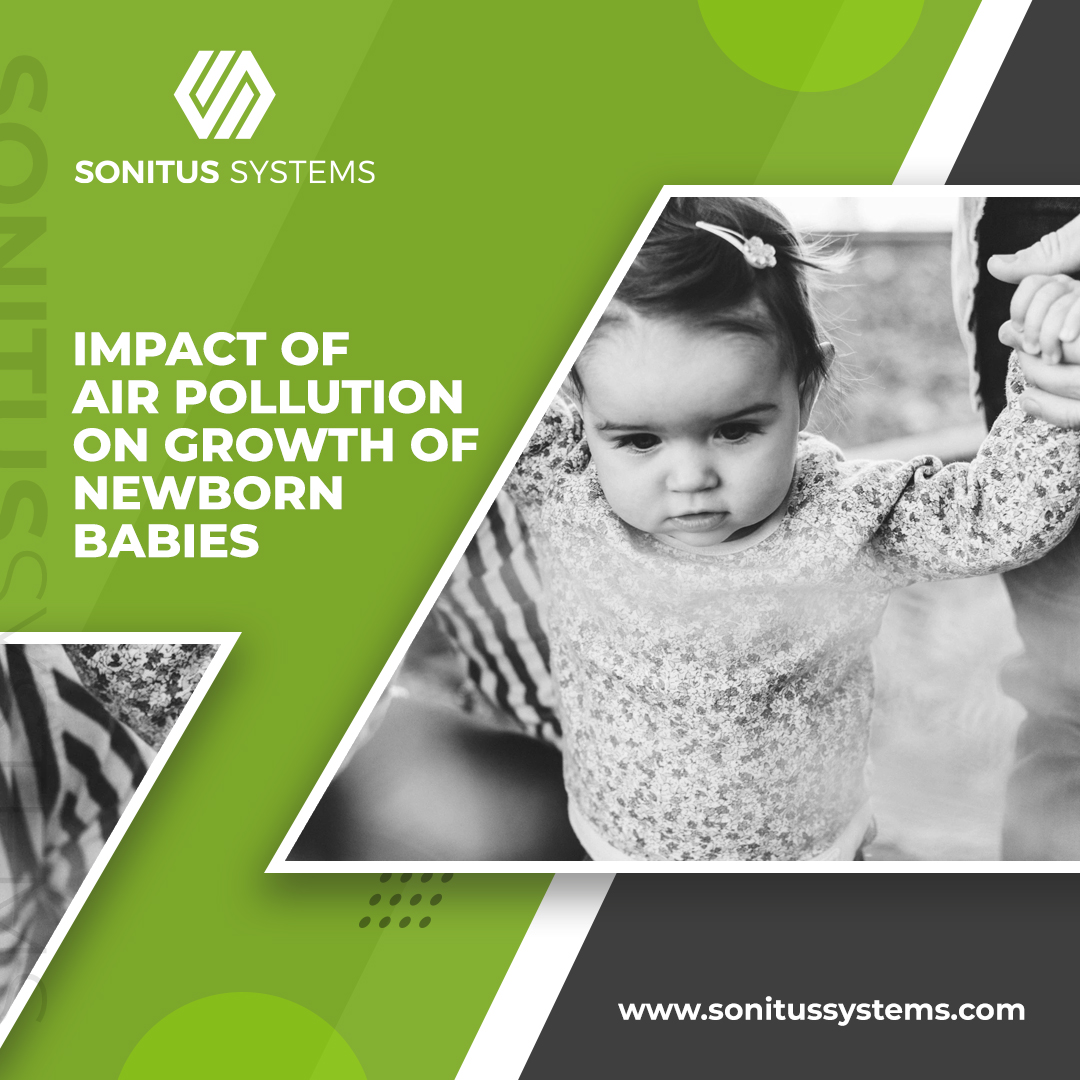The Impact of Air Pollution on the Growth of Newborn Babies
The issue of air pollution has once again come into sharp focus after new research shows it can have a detrimental effect on the growth of newborn babies. This latest study comes from a research team at the University of Basque Country, which has found a link between prenatal exposure to air pollution and the balance of thyroid hormones in infants. Specifically, the study published in the journal Environmental Research studied the effect of three variables:
- Nitrogen dioxide
- Particulate matter
- Thyroxine
The research team, lead by Amaia Irizar-Loibide of the Department of Preventive Medicine and Public Health, claims “the results obtained in the study have revealed the direct relationship between exposure to fine particles during pregnancy and the level of thyroxine in newborns”. It must be noted that the findings did not conclusively connect nitrogen dioxide (NO2) to thyroxine.
Thyroxine and PM2.5
Thyroxine (T4) is considered crucial to the healthy development of an unborn fetus. T4 controls both the rate of growth and metabolism speed, with the hormone also being critical to prenatal neurological development. The body’s ability to strike the right balance of thyroid hormones is considered a primary factor, therefore, in reducing the risk of some congenital diseases.
The study establishes a direct link between the thyroxine levels in newly born infants and prenatal exposure to particulate matter 2.5 microns or less (PM2.5). There is a growing concern, therefore, that air pollution is affecting the development of children to a greater extent than previously considered.
Prenatal Exposure to PM2.5
Specifically, Irizar-Loibide explains that exposure during the first trimester of pregnancy seems critical to PM2.5 affecting the thyroid balance found in newborns. Babies whose mothers were exposed to PM2.5 in the first months of pregnancy were found to have children with lower T4, however, “…as the pregnancy progresses, we found that this relationship gradually diminishes, i.e., the mother’s exposure gradually becomes less important”.
The researcher explains that, despite the effect of PM2.5 diminishing over the course of a pregnancy, the link re-establishes itself during the late stages, but inversely. That is, exposure to high concentrations of PM2.5 during late pregnancy leads to an increase in T4 levels in a newborn baby.
Irizar-Loibide states that it is unclear what the underlying mechanisms are for this peculiar cause and effect. Nevertheless, she and her team feel confident concluding that the early and late stages are the most sensitive periods in terms of air quality and foetal development.
Further Implications
Establishing the link between prenatal exposure to PM2.5 and thyroxine levels is just the beginning for the research team. Future research hopes to understand why exposure to carbon particulates and poor air quality index has contrary effects on thyroxine levels, possibly establishing a correlation to obesity, growth abnormalities, and neuro-development.
In addition, Irizar-Loibide and the other researchers at the University of Basque Country’s Department of Preventive Medicine and Public Health hope to better understand quite how air pollution comes to affect the unborn foetus. The study’s lead author explains that it is not clear whether it is carbon particulate matter itself that affects babies, passing through the placenta, or if it’s something ejected from the PM2.5 once absorbed into the body.
Social Demographics and Air Pollution
The study reconfirms the already well-established link between air pollution and human health problems. With Covid-19 infection rates higher in areas of high pollution, there is a need for cleaner air in our most densely-populated areas. Often, this coincides with being socially disadvantaged, with minorities and those of low income being more exposed to pollutants through living in more densely populated areas.
This link between geographic location, air quality and adverse health issues is not unknown. The connection between pollution and respiratory health impacts such as asthma is already well established, with particulates having a proven negative effect on people’s immune systems. One study even suggests early exposure to air pollution can have a deleterious effect on their general intelligence, using statistical models to analyse a person’s mental ability compared to particulate exposure.
The consensus is that air pollution is having a tremendously negative effect on people’s health and wellbeing. However, in their new study, Irizar-Loibide and her team demonstrate that even the unborn are affected by the quality of the air that we breathe. And with those on the lower end of the socio-economic scale disproportionately affected, it is cause for alarm and cities need to take action.
Sonitus Systems offers both the hardware and software for a range of environmental parameters on a continual basis, with real-time information available through our Sonitus Cloud dashboard. For more details on our indoor and outdoor noise and air quality monitoring products and services with automatic monitoring , please contact the team at www.sonitussystems.com/contact/contact
